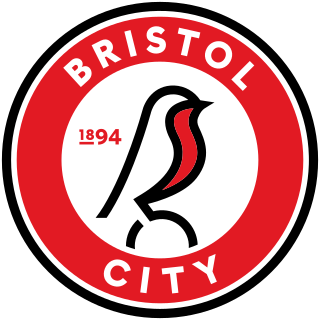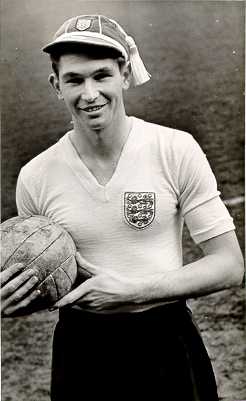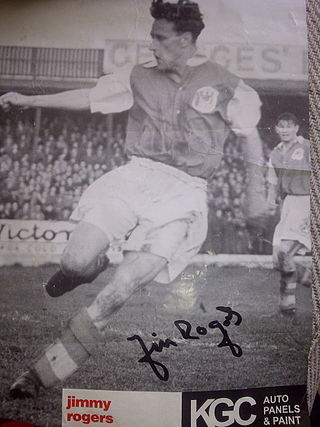Related Research Articles

Bristol City Football Club is a professional football club based in Bristol, England. The team compete in the EFL Championship, the second level of the English football league system.

St Mirren Football Club is a Scottish professional football club based in Paisley, Renfrewshire, that competes in the Scottish Premiership after winning the 2017–18 Scottish Championship. Founded in 1877, the team has two nicknames: The Buddies and The Saints.
Denis Smith is an English former professional footballer and manager. He made 531 appearances in all competitions in 15 seasons as a player in the Football League, and as a manager, he took charge of 1,195 competitive matches.
Peter Barr Cormack is a Scottish former international football player and manager. His greatest success was with Liverpool in the early 1970s, for whom he played 178 times, winning two league championships, one FA Cup and two UEFA Cup medals.
David Thomas Bassett is an English football manager and a former player. Bassett won a total of seven promotions and is one of a select number of managers who took charge of over 1,000 matches.

Peter John Walter Atyeo was an English footballer who played as a striker. He spent the majority of his career at Bristol City. He won six England caps between 1955 and 1957, scoring five goals. Atyeo made 645 appearances for Bristol City and scored a record 351 goals for them.
The 1997–98 season was the 118th season of competitive football in England.

Paul David Simpson is an English former professional footballer who is currently manager of Carlisle United. He has been a coach and manager at several English clubs and was manager of the England team that won the FIFA Under-20s World Cup in South Korea in 2017.
Christopher Garland was an English footballer who played in all four divisions of the Football League. He was capped once by England at under-23 level.
The 1981–82 season was the 83rd completed season of The Football League. This was the first league season with three points for win.
The 1996–97 Football League was the 98th completed season of The Football League.
Steve Neville is an English former professional footballer. He is assistant coach at Sorrento FC in Perth, Western Australia. In his 14-season career in the English Football League, he played in 494 games, in which he scored 135 goals for Southampton, Sheffield United, Bristol City and in three spells at Exeter City. In England he was part of two divisional title-winning teams and was a winner of the Football League Trophy. Near the end of his playing career, he picked up a league champions medal while playing for South China AA in Hong Kong.
William Herbert Coggins was an English footballer who played as a goalkeeper. He played for Everton in the 1931 FA Cup semi-final.

James Richard Rogers was an English footballer who played as an outside right and centre forward. He made over 340 Football League appearances in the years after the Second World War.
Gordon John Parr was an English footballer who played as a right half. He made over 280 Football League appearances in the years after the Second World War.
Alexander Tait was an English footballer who played as a centre forward. He made over 160 Football League appearances in the years after the Second World War.
Roger Douglas "Lou" Peters was an English footballer who played as an outside left. He made over 190 Football League appearances in the years after the Second World War.
John Shaw is a Scottish former footballer who played as a goalkeeper. He made over 400 Football League appearances in the 1970s and 1980s.
Paul David Stevens was an English footballer who played as a right back. He made over 140 Football League appearances in the 1970s and 1980s mostly for Bristol City.
The 1931–32 season was the 37th season of competitive football by Southampton, and the club's tenth in the Second Division of the Football League. After finishing in the top half of the Second Division league table for the past three seasons, the Saints struggled to challenge in 1931–32 and ended up finishing in 14th place, closer to relegation than promotion. Southampton's first season with manager George Kay started strongly, as the team picked up four wins in their first five matches and reached the top of the Second Division league table for the first time in the club's history. Form quickly deteriorated, however, and the club was briefly involved in a fight for survival in the new year. After picking up a few more wins, Southampton secured their safety and finished in 14th place with 14 wins, 14 draws and 14 losses.
References
- ↑ Hugman, Barry (1998). PFA Football League Players' Records 1946 – 1998. Queen Anne Press. ISBN 1-85291-585-4.
- 1 2 3 4 Woods, David; Edwards, Leigh (1997). Bristol City FC The First 100 years. Redcliffe Press. ISBN 1-900178-26-5.
- 1 2 3 4 5 6 7 8 9 10 11 Woods, David (1994). Bristol Babe The First 100 years of Bristol City FC. Yore Publications. ISBN 1-874427-95-X.